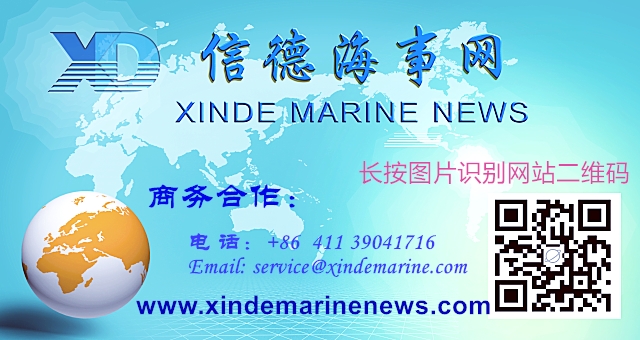China's NDRC to Investigate Port Anti-monopoly Situation
Efforts to reduce import and export logistics costs
On 15 November 2017, China’s National Development and Reform Commission (NDRC) held a press conference to release macroeconomic performance and respond to hot issues. Meng Wei, a spokesman, said the NDRC and the Ministry of Transport conducted an anti-monopoly investigation of Shanghai Port and Tianjin Port from mid-April this year according to law.

In accordance with the relevant requirements of the NDRC anti-monopoly investigation, the port enterprises such as Shanghai International Port (Group) Co., Ltd., Tianjin Port (Group) Co., Ltd., Qingdao Port (Group) Co., Ltd. and Ningbo Zhoushan Port Co., Ltd. recently rectified and regulated its production and business operations, maintained a fair competitive market environment, effectively reduced the cost of import and export logistics and promoted the real economy to reduce the burden and increase efficiency. Among them, a reduction in loading and unloading operations costs can save the import and export logistics costs about 3.5 billion RMB.
The investigation discovered some of the port enterprises have suspection of violating the "Anti-Monopoly Law", the main problems include:
First, some ports require shipping companies to use tugboats, tallyings, shipping agents and other services provided by their own subsidiaries. The investigation found that they restricted or disguised the shipping company by accepting the services provided by the subordinate enterprises by signing the format contract, hiding related information and dividing the market for different companies.
Second, some ports charge incompatible local foreign trade containers loading and unloading operations fee much higher than competitive international transit containers.
Third, some ports impose mandatory services, non-competition terms, loyalty provisions and other unfair trading conditions on their trading partners. Many ports, taking advantage of their dominance in the relevant markets, attach some unreasonable trading conditions when dealing with shipping companies and owners.
Most ports are currently studying and formulating a rectification program. The major ports such as Shanghai Port, Tianjin Port, Ningbo Zhoushan Port and Qingdao Port have fully regulated relevant issues and drastically reduced the handling fees of foreign trade containers. Tangshan Port, Huanghua Port, Weihai Port, Rizhao Port, Lianyungang Port and other ports also self-checked relevant issues and formulated rectification measures. These measures include:
First, fully open the tug, tally and shipping agency market.
The port should fully respect the autonomy of the shipping company and its shipping agents in choosing the tugboat company and create fair competition conditions. Abolish the memorandum or agreement on the division of the tally market and not restrict any tally company to carry on business in the port, and the shipping company shall choose the tally company independently. As for the shipping agency, the port should smooth its channels and allow shipping companies to be encouraged to submit vessel information through channels other than their affiliated companies.
Second, the port should reasonably reduce the import and export of container handling fees.
Shanghai Port, Tianjin Port, Ningbo Zhoushan Port and Qingdao Port will cut the handling charges of foreign trade import and export containers from 2018 at a rate of 10-20% or so, reducing the import and export logistics cost by about 3.5 billion yuan each year.
Third, the port should immediately abolish and clean up unfair trading conditions.
Sources: Xinde Marine News
Editor: Carrie Zhu
投稿或联系信德海事:
admin@xindemarine.com


